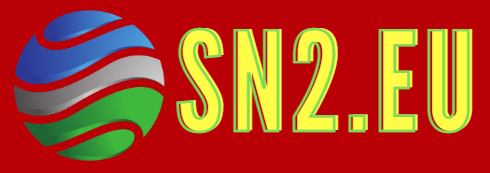Rainham residents face the same HMRC deadlines as everyone else across the UK. However, local support and expert guidance can transform this annual obligation from a dreaded chore into a straightforward administrative task. Professional assistance ensures accuracy whilst identifying legitimate deductions you might otherwise miss.
This comprehensive guide covers everything Rainham taxpayers need to know about Self Assessment. From understanding who needs to file through to avoiding common pitfalls, we'll help you navigate the system confidently and efficiently.
Who Needs to Complete Self Assessment Rainham Returns?
Self Assessment requirements catch many people unexpectedly. HMRC doesn't always send reminder notices, making personal responsibility crucial for compliance. Understanding your obligations prevents nasty surprises and potential penalties.
Self-employed individuals must file regardless of income level. This includes freelancers, consultants, tradespeople, and anyone running their own business. Even small-scale activities like selling crafts online or providing tutoring services trigger Self Assessment requirements.
Company directors face automatic inclusion in Self Assessment. Your salary and dividend income require declaration alongside any other earnings. Benefits in kind, such as company cars or private medical insurance, also need reporting.
Higher-rate taxpayers often need Self Assessment when earning over £100,000. The personal allowance reduces above this threshold, requiring manual calculation. Investment income, rental profits, and pension contributions may also trigger filing requirements.
Additional income sources include property rentals, freelance work alongside employment, investment returns exceeding £10,000, or foreign income. Even modest amounts can push you into Self Assessment territory.
Professional advice helps determine your exact obligations. Rainham accountants understand local circumstances and can clarify whether filing is necessary for your specific situation.
Essential Self Assessment Rainham Deadlines and Requirements
Missing Self Assessment deadlines proves expensive and stressful. HMRC imposes automatic penalties regardless of circumstances or tax owed. Understanding the timeline helps you plan effectively whilst avoiding unnecessary costs.
Registration deadlines occur by 5th October following the relevant tax year. New businesses, directors, or anyone receiving untaxed income must notify HMRC promptly. Late registration attracts immediate penalties even before filing requirements.
Paper returns require submission by 31st October. However, online filing extends the deadline to 31st January, providing additional preparation time. Most taxpayers benefit from digital submission through HMRC's online portal.
Payment deadlines coincide with filing dates. Outstanding tax must be settled by 31st January alongside return submission. Payments on account may also be required for the following tax year.
Record keeping obligations continue throughout the year. Supporting documentation must be retained for at least five years after filing. Digital storage proves acceptable, but ensure backup systems prevent data loss.
Professional preparation eliminates deadline stress whilst ensuring accuracy. Rainham accounting services handle submission deadlines automatically whilst you focus on business operations. They also provide reminder systems preventing last-minute rushes.
Early preparation proves beneficial for complex returns. Investment portfolios, property income, and business expenses require careful analysis. Professional support identifies optimization opportunities whilst ensuring compliance.
Maximising Deductions and Avoiding Common Self Assessment Mistakes
Self Assessment success depends on accurate record-keeping and understanding allowable expenses. Many taxpayers overpay through missed deductions or underclaim through poor documentation. Professional guidance optimises your position legally.
Business expenses reduce taxable profits significantly when properly claimed. Office costs, travel expenses, equipment purchases, and professional subscriptions all qualify. However, personal elements must be excluded from business claims.
Home office deductions became more important following remote working trends. Simplified flat-rate schemes or detailed actual cost methods both work. Choose the approach providing maximum benefit for your circumstances.
Mileage allowances offer substantial savings for business travel. HMRC approved rates cover vehicle running costs without requiring detailed receipts. Accurate mileage logs prove essential for defending claims during investigations.
Professional development expenses including training, books, and conference attendance often qualify. These investments improve earning capacity whilst reducing current tax liability. Keep detailed records supporting business relevance.
Pension contributions provide powerful tax relief opportunities. Personal contributions extend basic rate bands whilst higher rate taxpayers claim additional relief through Self Assessment. Annual allowance limits require careful monitoring.
Common mistakes include mixing personal and business expenses, inadequate record keeping, and misunderstanding allowable deductions. Professional review prevents these errors whilst identifying optimization opportunities you might miss.
Rainham taxpayers benefit from local accounting expertise understanding regional business conditions. Professional support ensures legitimate claims whilst maintaining HMRC compliance standards.
At the End of the Day
Self Assessment doesn't have to dominate your thoughts or disrupt your business operations. With proper planning, accurate records, and professional support when needed, the annual filing becomes a routine administrative task rather than a source of stress.
Rainham residents have access to excellent local accounting expertise alongside national online resources. The key lies in choosing the approach that matches your complexity level, available time, and confidence with tax matters.
Remember that Self Assessment extends beyond simple compliance. Strategic planning throughout the year can significantly reduce your tax liability through legitimate means. Professional advice often pays for itself through identified savings and penalty avoidance.
Don't leave your Self Assessment until the last minute. Early preparation provides time for queries, amendments, and optimization. Whether you choose professional assistance or self-completion, start gathering your documentation well before the January deadline.
Your financial future benefits from taking Self Assessment seriously whilst not letting it overwhelm your daily life. Professional support is available when you need it, but basic understanding and good record-keeping habits serve you well regardless of your chosen approach.






